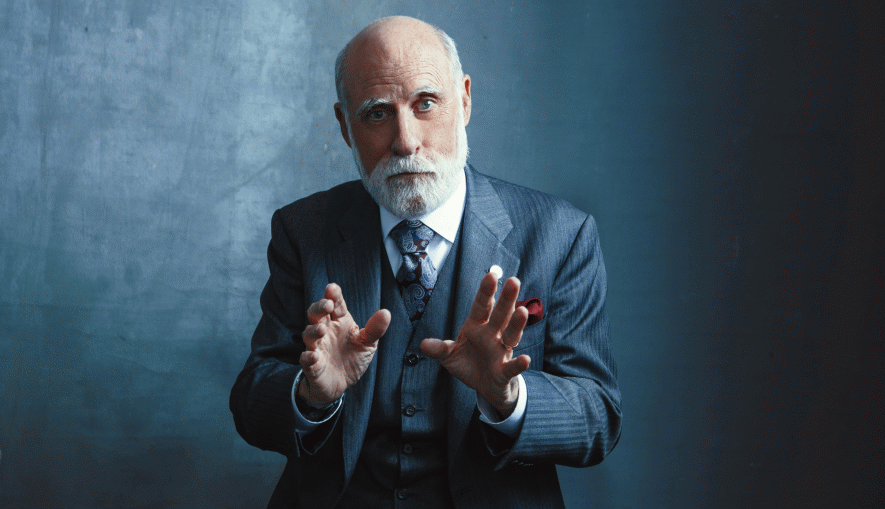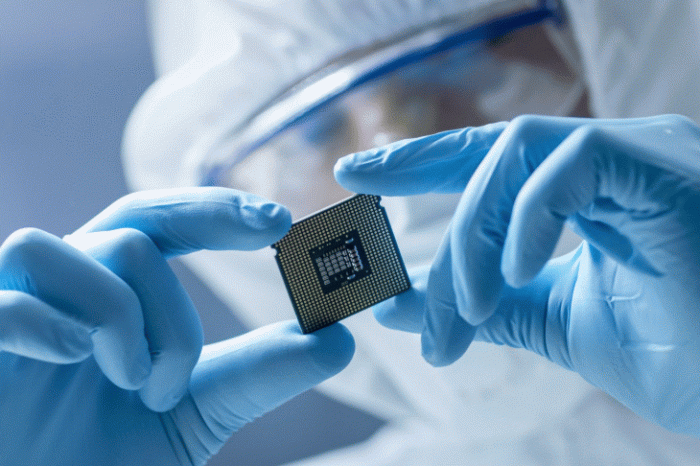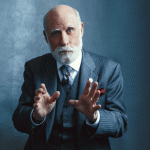Top tech startup news for Wednesday, February 15, 2023: Amazon, Google, OpenAI, Slync, and Tesla

Good evening! Below are some of the top tech startup news stories for Wednesday, February 15, 2023.
Don’t rush investments into A.I. just because ChatGPT is really cool, ‘Father of Internet’ warns
Vint Cerf, who is considered the “Father of the internet” and Google “internet evangelist” warned investors not to rush into making money from conversational and generative AI just “because it’s really cool.” Cerf doesn’t think the current conversational AI is not ready for prime time, adding that the technology is not advanced enough to place near-term bets.
Cerf told attendees at a Mountain View, California conference on Monday that “There’s an ethical issue here that I hope some of you will consider,” further pleaded with the crowd to be thoughtful about AI and not scramble to invest in conversational AI just because “it’s a hot topic.”
“There’s an ethical issue here that I hope some of you will consider,” Cerf told the conference crowd Monday. “Everybody’s talking about ChatGPT or Google’s version of that and we know it doesn’t always work the way we would like it to,” he added.
“If you think, ‘Man, I can sell this to investors because it’s a hot topic and everyone will throw money at me,’ don’t do that. Be thoughtful. You were right that we can’t always predict what’s going to happen with these technologies and, to be honest with you, most of the problem is people — that’s why we people haven’t changed in the last 400 years, let alone the last 4,000.”
Meanwhile, his message to executives looking to rush business deals on chat artificial intelligence is very simple: “Don’t.” The warning comes amid the growing popularity of OpenAI ChatGPT.
In just two months, ChatGPT reached 100 million monthly active users in January, making it the fastest-growing consumer application in history. The sudden success of ChatGPT has led search giant Google to issue a code red.
Tesla to open some of its U.S. charging networks to rivals as part of the $7.5 billion federal program
Tesla has agreed to open part of its U.S. charging network to electric vehicles (EVs) made by rivals as part of the $7.5 billion federal program to electrify the nation’s highways to cut carbon emissions, the Biden administration said on Wednesday. The move could erase the exclusivity once enjoyed by Tesla car owners.
The expansion could also turn Tesla into the universal filling station of the EV era, and also risk eroding the competitive edge for vehicles made by the world’s largest electric car maker.
The administration added that by the end of 2024, Tesla will open 3,500 new and existing superchargers along highway corridors, as well as 4,000 slower chargers at locations like hotels and restaurants, to non-Tesla customers.
In exchange for opening up its supercharging stations, Tesla would be eligible for a subsidy – including retrofitting its existing fleet – as long as Tesla chargers would allow non-Tesla electric vehicles with a federally backed charging standard called combined charging system (CCS) to charge, a White House official said at a briefing.
Meanwhile, this is not the first time Tesla has done this. Just a little over a year ago, Tesla also opened more of its European Superchargers to third-party EVs beyond the pilot program the company started in the Netherlands to France and Norway.
Amazon leads a $20M investment in Web3 startup Superplastic to build entertainment brands with NFTs and virtual characters
Amazon is betting big on Web3 after it leads a $20 million investment in Superplastic, an entertainment startup company that partners with well-known brands and celebrities on NFT drops.
Superplastic, which was founded by the creator of Ello and Kidrobot, announced Wednesday it has raised $20 million in a Series A extension round. led by the venture capital arm of Amazon.com Inc as the company looks to expand its universe of digital characters. The latest capital infusion brings Superplastic’s total funding to $58 million, the company said but gave no specifics about its current valuation.
The round was led by The Alexa Fund, a venture arm of Amazon that focuses on new media, smart consumer electronics, and ambient intelligence. Other backers include high-profile investors across web2, web3, gaming, and fashion, such as Craft Ventures, Google Ventures, Galaxy Digital, Kering, Sony Japan, Scribble Ventures, Kakao, Animoca Brands, Day One Ventures, and Betaworks.
In conjunction with the funding, Superplastic also announced it has inked a deal with Amazon to collaborate on an animated comedy series. “The Janky & Guggimon Show,” starring the Superplastic core characters Janky and Guggimon, is currently in development at Amazon Studios.
“The new collaboration partnership with Amazon Studios reaches a massive audience and provides a new playground for us to wreak havoc worldwide. We’re grateful for the investment the Amazon Alexa Fund gave us to help us continue to grow the Superplastic Universe,” said Superplastic founder and CEO Paul Budnitz.
Founded in 2017 by Huck Gee and Paul Budnitz, Superplastic sells toys, apparel, and non-fungible tokens (NFTs) in collaboration with brands, including Gucci, Fortnite, Mercedes-Benz, Tommy Hilfiger, and celebrities such as Paris Hilton, Post Malone, and The Weeknd. The company also creates limited-edition art toys, apparel, games, and animation based on characters created in collaboration with some of the greatest artists in the world.
Founder of Goldman Sachs-backed tech startup Slync charged with $67 million fraud
Christopher Kirchner, the founder of $240 logistics software startup Slync, was arrested at his home in Westlake on Tuesday morning, according to the U.S. attorney’s office for the Northern District of Texas.
Kirchner, 35, was charged with fraud by multiple federal agencies for selling $67 million in securities to investors and then using nearly half of the proceeds to buy a private jet and pay for other personal expenses to “live extravagantly while not paying Slync’s employees.”
In a complaint filed by the Securities and Exchange Commission (SEC), the agency accused Kirchner of fraudulently offering and selling more than $67 million of securities, of which he allegedly misappropriated more than $28 million for personal benefit. The SEC added that Kirchner transferred tens of millions of dollars from Slync accounts to his personal accounts until his termination in August 2022.
In another criminal charge, the US Department of Justice (DOJ) accused Kirchner of wire fraud and misappropriating $20 million from the company. If found guilty of the DOJ charges, Kirchner could face up to 20 years in prison.
“We allege that Kirchner lied about Slync’s business to secure tens of millions of dollars from investors, a massive portion of which he then stole from the company to live extravagantly while not paying Slync’s employees,” said Sheldon L. Pollock, Associate Director of the SEC’s New York Regional Office. “The Enforcement Division remains laser-focused on uncovering and rooting out such brazen fraud and charging individuals who seek to induce investors to buy securities through lies and deception,” SEC said in a press statement.
The charges came after FBI agents raided Kirchner’s Texas mansion Tuesday morning, towing multiple luxury vehicles from the property. Kirchner made an initial appearance before U.S. Magistrate Judge Hal R. Ray, Jr. later in the day. If found guilty of the DOJ charges, he could face up to 20 years in prison.
Slync was founded in 2017 by Christopher Kirchner and two other co-founders Raj Patel and Varun Dodla.
Baltimore-based tech startup Apkudo raises $37.5M to help companies manage connected devices across supply chains and reduce e-waste
There are more than six billion smartphones circulating globally and this number is expected to grow rapidly with increasing connectivity and consumption across the globe. These electronic devices are made of valuable resources, from the rare earth metals contained in their batteries to their individual electronic components.
Yet today, less than 20% of electronics are collected, refurbished, or recycled worldwide, which translates to a lost value of more than $50 billion each year. Furthermore, these devices contain several hazardous materials and when not managed properly at end-of-life, pollute air and groundwater at an alarming rate. It’s against this backdrop that one tech startup has made it its mission to help reduce the environmental impact of unused smartphones and other connected devices.
Enter Apkudo, a Baltimore, Maryland-based device-testing platform that helps companies manage inventory of connected devices across their supply chain networks. Apkudo enables supply chain efficiency and transparency across the lifecycle of connected devices and helps companies manage, sell, and test connected devices like smartphones and laptops while supporting smart decision-making and strengthening the repair, resale, and recycling market. With ApKuod, companies are able to “drastically cut down on e-waste by uncovering the next best use for every connected device,” the company said on its website.
To further grow its Circular Industry Platform and expand its reach, Apkudo announced today that it raised $37.5 million in a Series C funding round co-led by Closed Loop Partners’ Leadership Fund, and Piper Sandler Merchant Banking with participation from MissionOG, Harbert Growth, Grotech Ventures, Lavrock Ventures, and Point Field Partners.
The latest funding comes almost a year after the startup raised $14.4 million in growth funding to expand its international reach and double its staff. The latest round, which brings Apkudo’s total raised to $75 million, will be used to expand Apkudo’s engineering teams, build out the company’s go-to-market function and establish a global international presence.
“Management chose to raise now so that we can respond appropriately to the intense market demands for the Apkudo platform,” Matthews said. “Our customers are also asking us to expand with them beyond mobility and into compute while also working together in Europe, Asia, and the Middle East.”
Matthews founded Apkudo in 2011 with his friend Ben Leslie. The two met while they were both students at the University of New South Wales in Australia. The duo sought to build a service that companies could be used to help companies manage connected devices to maximize device value, minimize labor costs and reduce e-waste.

